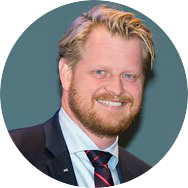The 4 skills of any successful facility management leader in 2021

According to the International Facility Management Association (IFMA), a facility manager (FM) must in their capacity "ensure functionality, comfort, safety and efficiency of the built environment by integrating people, place, process and technology."
IFMA also lists a number of "skill sets" required of facility management professionals:
- Occupancy and human factors
- Operations and maintenance
- Sustainability
- Facility information and technology management
- Risk management
- Communication
- Performance and quality
- Leadership and strategy
- Real estate
- Project management
- Finance and business
Top facility management skills in 2021
It's safe to say that those in facility management must possess a wide range of essential skills. This has never been more true than in 2021, now that the COVID-19 pandemic has fueled immense changes to the workplace and to FM responsibilities.
So we reached out to several industry experts and asked them to choose what they believe is the #1 skill for success.
Each FM also provided real-life examples along with their insights into why each skill is vital to crafting an efficient and safe work environment.
1. Technological creativity
By nature, professionals in facility management get tons of challenges thrown at them every day. Many of these challenges will demand creative solutions.

Elliott Chase
This is especially true with the influx of technological solutions - one needs to find a creative combination of technological tools to best fit the needs of the facility.— Elliott Chase, Managing Editor at i-FM
So if you're used to simply following the rules and doing “business as usual,” then chances are you're not going to build an innovative workplace. In fact, you risk falling behind on many important tools you should be aware of.
Much talk of change in the industry now hinges around the growing role of technology.
From our point of view, as industry observers, it seems clear that there are three areas that are critical to success:
- This requires an open mind about new opportunities coming along for service management, delivery, and reporting. These will help an FM stay both up-to-date and in demand.
- And as we shift toward a greater reliance on cloud-based technology, there is (as there always has been) a premium on very human traits. Facilities management is a people business, on multiple dimensions, and will continue to be.
- Now more than ever, we need to rely on these solutions to help keep our people and assets safe in the context of global pandemics. We require better vetting and tracking of individuals like employees, visitors, and contractors who set foot on our premises.
More recently, I spoke about how Proxyclick's customer Sodexo has set a great example in technological creativity during COVID-19. As they offer food catering and facility management services across various industries, they had to come up with an adaptable business continuity plan per region.
They used Proxyclick to create a set of health-related questions for employees and visitors to reduce the risk of infection. They also adapted to fast-changing regulations in countries like Singapore, using Proxyclick from home to set new safety rules for visitors arriving the next day.
2. Compassion
A majority of the responsibilities in facility management focus on creating a happier and healthier work environment. So it’s imperative to put yourself into the shoes of your workers and facility guests—and to show compassion.
Jurriaan Hommes, currently the Regional Strategic Account BSC - Europe, Russia, and Turkey for Diversey, agrees that one of the most important skills for a facility manager is the ability to deal with people effectively.

Facility Management is all about the employees working for you within all FM services, the different stakeholders, the end users, and the guests.
It is not just about the 'desk' job and all the processes, it's about what your guests (and employees) experience every day when passing through your department. You need to guide your staff by example and be present if needed.— Jurriaan Hommes, LinkedIn Group Owner of Integrated Facility Management
The ability to better understand your guests’ and employee’s struggles and anticipate their frustrations will allow you to create a workplace that actually addresses their needs, instead of one that just looks good on paper.
And today, as we work to reinforce health and safety measures across facilities, warehouses, and offices, increased compassion and understanding for individuals' health, work-from-home, essential working, or unemployment situations is absolutely necessary.
3. Adaptability
No matter how savvy you are with Excel or building management software, you need to be able to quickly handle new or urgent situations that come your way.
You have to do so in a very calm, cool, collected demeanor.
Peter Ankerstjerne, Chief Strategy Office at Planon and 1st Vice Chair of the IFMA Board of Directors, believes that the number one skill of facility manager is adaptability.

Peter Ankerstjerne
Facility managers must be able to understand and support the customer's’ core business and to adapt the workplace and the service set-up accordingly.— Peter Ankerstjerne, Chief Strategy Office at Planon
Ankerstjerne speaks frequently on this very topic, as he did in Madrid in 2015. Ankerstjerne writes, "...as Facility Managers, we must evolve beyond our engineering and workplace administration skills into becoming more people-centric in the way we design and manage our workplace focusing on how to further leveraging organizational productivity and developing company culture."
At the onset of the COVID-19 pandemic, Akerstjerne spoke out about adapting to a new normal in the office, and new roles and responsibilities among facility managers. As he stressed on LinkedIn:
In navigating what's next, it's critical to now prepare for the reactivation of our workplace and to balance the health, safety, and financial implications of the COVID-19 lockdown. Preparedness, resilience, and agility will be key as we continue to implement the necessary health and wellbeing measures to allow the workplace to be safe and effective.
We also sat down with Ankerstjerne in a discussion on how facility management is continuing to transform in this new world of work, below.
Ankerstjerne reminds us that adapting to these new changes we're seeing arise from the pandemic will require a shift in the role of FMs:
It's about shifting the role of the facility manager from that back office type of conduit, the invisible hand that goes around the office and makes sure everything works, to be much more front and center in that experience. Facility managers should be the people that tie all this stuff together to create a much more coherent experience for the employee when they come to work, making sure that everything works, and all the touchpoints support that level of flexibility that we're looking for.
4. A data-driven mindset
David Markowitz of ServiceChannel, and expert on facility management anaytics tools, knows a thing or two about analyzing data.
He believes that adding value as a facility manager means analyzing things like facilities spend, contractor performance, and quality of service. But that's not all.
You then need to proactively identify cost outliers and areas of improvement.

David Markowitz
Today, any facilities manager looking to stay on top of his/her game, needs to be increasingly data-driven. The profession's moving away from simply being a reactive, dispatcher of technicians for work requests.— David Markowitz
He goes on to say that having the right facility management analytics tools make all the difference. Only then you can you leverage all the data available.
Markowitz goes further in outlining what it takes to "get a seat" at the proverbial table in stakeholder management in his e-book What You Need to Know to Succeed in Facilities Management in 2020.
Succeeding in facility management
While each skill is important on its own, the combination of all of the above can really be the difference between an average facility manager and one that shines.
For additional resources on facility management, check out:
- IFMA knowledge base
- How the FM industry is shifting focus
- 3 key safety steps that accompany facility managers' evolving roles
- What is facility management's take on the workplace of 2021 and beyond?
- How facilities management will move forward: 2020 learnings from a CEO
What is abundantly clear, though, is that the changing role of facility managers extends way beyond on-site responsibilities, particularly during difficult situations like global pandemics.
The career paths available now and in the future correlate directly to the value facility management professionals bring to their organizations.
Bottom line? As we're facing sudden transformations in the workplace, there are exciting and important challenges ahead.
Interested in learning more about Proxyclick's latest features? Book a meeting with one of our experts now.



